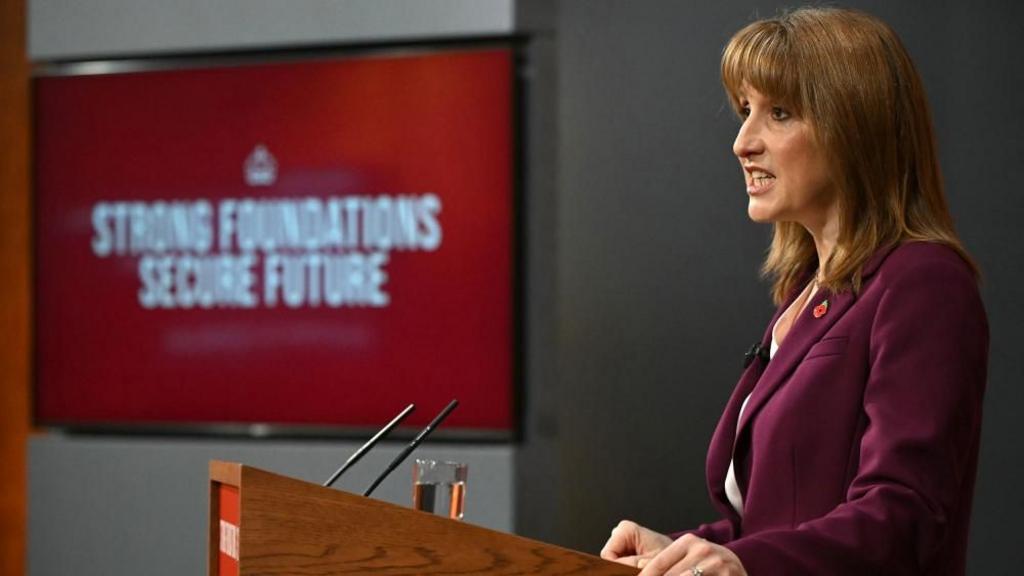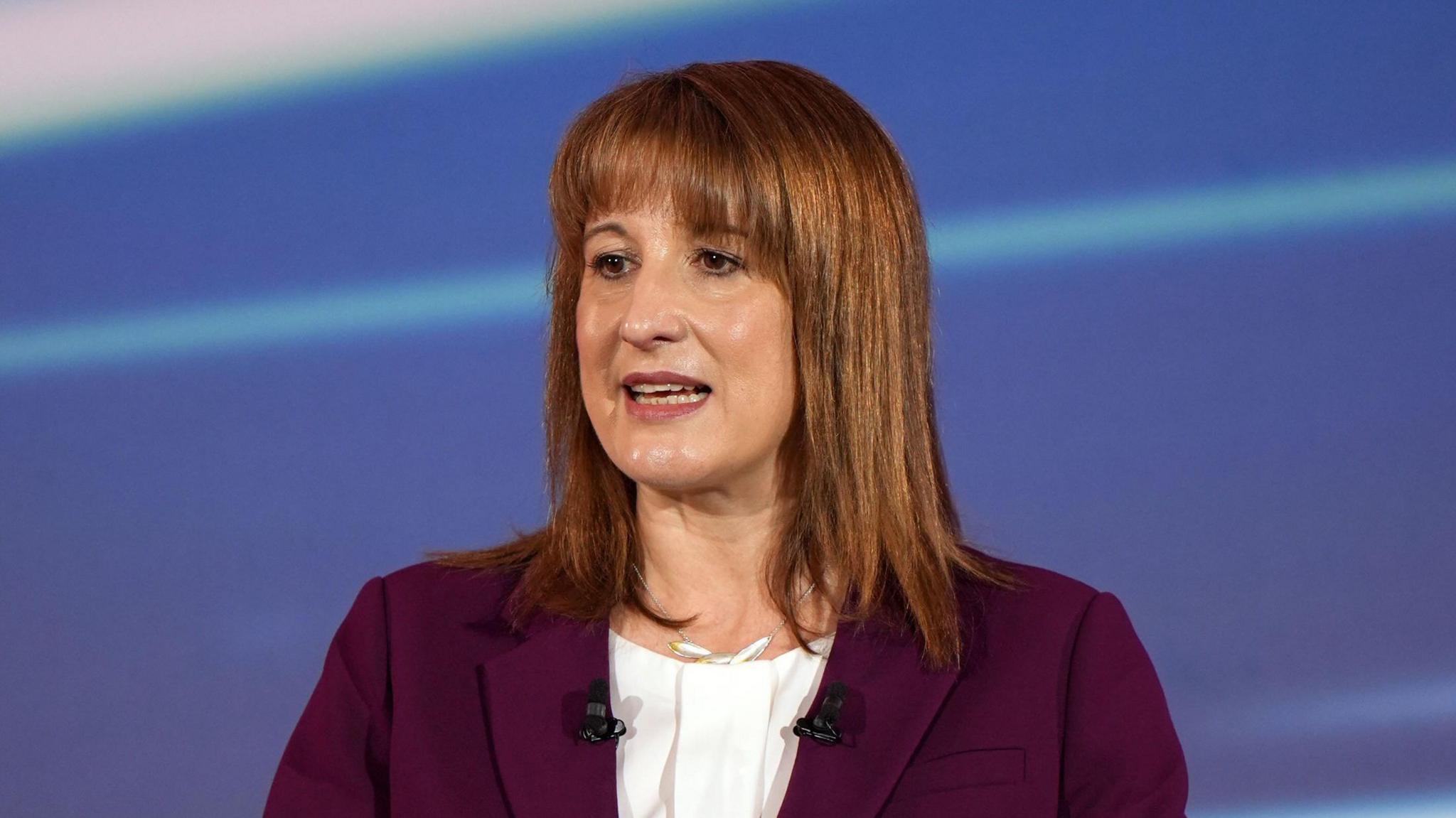In a stunning pivot that sent ripples through financial markets this morning, Chancellor Rachel Reeves has scrapped plans to hike income tax rates in the upcoming Budget on November 26. This decision, confirmed by government sources and reported across major outlets like the BBC and Financial Times, eases immediate pressure on millions of UK workers facing squeezed budgets amid rising living costs.
The move follows unexpectedly positive economic data, including stronger growth forecasts that shrink the fiscal shortfall from £30 billion to around £20 billion. Workers earning between £12,571 and £50,270 can now hold onto more of their hard-earned cash, avoiding a breach of Labour's key manifesto pledge.
Reeves' reversal comes just days after tense speculation gripped Westminster, with whispers of internal Labour rebellions and voter backlash in upcoming local elections. Culture Secretary Lisa Nandy captured the sentiment today, insisting the government remains committed to fair play. "She won't play fast and loose with people's money," Nandy told broadcasters, underscoring the emotional weight of these choices for families already stretched thin. Yet markets reacted sharply, with the pound dipping 0.5% against the dollar and gilt yields spiking over 10 basis points, reflecting investor jitters about unfilled revenue gaps.

Chancellor Rachel Reeves delivers her pre-Budget speech, outlining the UK’s fiscal challenges and potential tax rises.
The Dramatic U-Turn and Its Political Stakes
This isn't just policy wonkery, it's a high-wire act for a government barely settled in power. Reeves had hinted at tough measures earlier this month, warning of a "black hole" in public finances during a Downing Street briefing that left households bracing for pain. But fresh Office for Budget Responsibility projections painted a rosier picture, giving her wiggle room to sidestep the politically toxic step of raising basic, higher, or additional rates. Senior currency economist Lee Hardman at MUFG called it a gamble, noting it "prioritises popularity with the public over restoring confidence in the finances." His words carry a sting of frustration, echoing the quiet anxiety many economists feel about long-term stability.
For Labour, the stakes feel personal. With elections looming in Scotland, Wales, and key English councils, breaking the no-tax-rise promise could fracture the coalition that swept them to victory. Deputy leader Lucy Powell reiterated today that manifesto commitments matter deeply, a nod to the trust voters placed in the party. This U-turn buys breathing space, but it demands creativity elsewhere to fund NHS waits, school repairs, and green initiatives without alienating the working majority.
How Much You Could Save on Your Paycheck
The relief hits home fast for everyday earners. Sticking with current rates means a typical £30,000-a-year worker dodges about £450 in extra annual tax, enough to cover a month's groceries or a utility bill in this inflationary squeeze. Higher earners fare even better, with those above £125,140 potentially saving thousands compared to a mooted 2% bump. According to analysis reviewed by Finance Monthly, these frozen rates preserve real take-home pay as wages creep up with inflation.
Since the 2023 freeze on personal allowances and National Insurance thresholds, stealthy band creep has quietly pulled 1.2 million more people into higher brackets. Without hikes, your next pay rise might actually feel like one, not a mirage eroded by brackets. For a family on £45,000 combined, that's an extra £300 to £500 yearly, a buffer against energy spikes or school runs that eases the daily grind.
Stealth Taxes on the Horizon: What Reeves Might Target Next
With headline rates off the table, attention turns to subtler revenue grabs that could still nibble at wallets. Extending the threshold freeze stands out, projected to haul in £8.3 billion annually by dragging more incomes upward without fanfare. Lowering thresholds outright risks backlash, but it's under review for middle earners. Meanwhile, the Treasury eyes windfalls from electric vehicle subsidies and gambling levies, aiming to tap sectors booming post-pandemic without touching pensions or core work taxes.
These options thread a needle between fiscal duty and voter empathy. Officials stress nothing's locked in, but the focus stays on "fair choices" that shield low-paid families while prodding high-profit industries. For consumers, it means watching for EV purchase incentives or betting app fees that might indirectly hike costs at the pump or trackside.

UK households can boost their savings as income tax rates remain steady, putting more pounds back into family budgets this year.
Unpacking Fiscal Drag: The Silent Wallet Drainer and Your Defense Plan
Fiscal drag sneaks up like inflation's sly cousin, pulling you into higher tax bands as your salary rises without the government adjusting thresholds for price increases. In plain terms, if your pay jumps 3% to match costs but the £12,571 personal allowance stays put, you owe more tax on the same buying power, effectively a hidden levy. Right now, with Reeves leaning harder on this tool post-reversal, it could siphon £15 billion extra by 2028, per Office for Budget Responsibility estimates, hitting 7 million workers and eroding 1-2% of disposable income for middle earners.
You should care because it turns progress into punishment, turning a deserved raise into a tax trap that starves savings for holidays or home tweaks. Imagine landing that promotion only to see half the gain vanish, leaving less for family treats or emergency funds in an economy still wobbling from global shocks. This isn't abstract, it's the difference between building security or treading water.
Here's fresh insight to arm yourself: Beyond basic budgeting, audit your tax code via HMRC's app today, as 2025's Budget might embed deeper freezes, exposing errors affecting 5 million filers yearly. A smart move is ramping pension contributions by 2-5% now, not just for retirement but to slash taxable income below the 40% band, unlocking £1,000+ refunds annually for a £40,000 earner. Pair it with maxing your £20,000 ISA allowance into growth funds, shielding gains from future drags. Take Sarah, a 38-year-old teacher we spoke to, who shifted £3,000 to her SIPP last year and reclaimed £600, turning drag into drive.
The Budget Horizon: Breathing Room for Households
As November 26 nears, this steady-rate stance delivers a morale boost in uncertain times. It hands families more control over essentials like rent surges or childcare fees, fostering predictability for big plans from mortgages to uni funds. Reeves' choice underscores how fiscal paths shape lives, offering a glimmer of stability when every pound battles headwinds.
My Take: A Pledge Kept, But Storm Clouds Linger
Kudos to Chancellor Reeves for holding the line on that manifesto promise, a rare win in the cutthroat world of fiscal tightropes. Sticking to no income tax hikes feels like a genuine hug for families scraping by, letting them pocket real cash amid the endless squeeze of bills and basics. It's a nod to trust, the kind that Labour fought hard to rebuild after years of choppy politics, and it lands just right as winter bites and elections loom.
That said, my gut twists a bit over the bigger picture. The economy's still nursing bruises from global jitters and those stubborn supply snarls, with growth forecasts flickering like a faulty bulb. And let's not sugarcoat the £20 billion black hole, it demands real fixes soon, or we'll all feel the pinch through sneaky freezes or sector hits that ripple to our doors. Reeves has bought time with this pivot, but steering clear of deeper trouble means bold moves ahead, ones that balance books without breaking spirits. Fingers crossed she nails it, for all our sakes.
Readers' Top Searches: Unanswered Questions on Reeves and Taxes
What Is Rachel Reeves' Net Worth in 2025?
Rachel Reeves' net worth sits around £1.57 million as of 2025, built through her economics career at the Bank of England, parliamentary salary topping £91,346, and prudent investments in property and savings. This modest fortune for a chancellor reflects her Leeds roots and focus on public service over flash, though disclosures show £15,000 in recent speaking fees supporting her duties. It highlights the grounded ethos she brings to balancing books that affect millions, far from the millionaire elite often critiqued in politics.
Will Income Tax Rates Rise in the 2025 UK Budget?
No, Chancellor Reeves confirmed today she won't touch basic, higher, or additional income tax rates in the November 26 Budget, dodging a manifesto breach amid better forecasts. This U-turn, sparked by a £10 billion shortfall shrink, prioritizes worker relief but spotlights stealth options like threshold tweaks. For consumers, it means stable planning, though vigilance on NI changes remains key to safeguarding post-tax earnings in a volatile economy.
How Does the Income Tax Threshold Freeze Impact Middle-Income Families?
The freeze, in place since April 2023, claws back £8.3 billion yearly by hoisting inflation-adjusted wages into higher bands, affecting 1.5 million middle-income households with effective rate jumps of 2-4%. A £35,000 earner might lose £400 annually to this drag, squeezing budgets for fuel or family outings. Reeves' likely extension amplifies urgency for tweaks like salary sacrifice schemes, helping families reclaim control and convert raises into real wealth builders.














